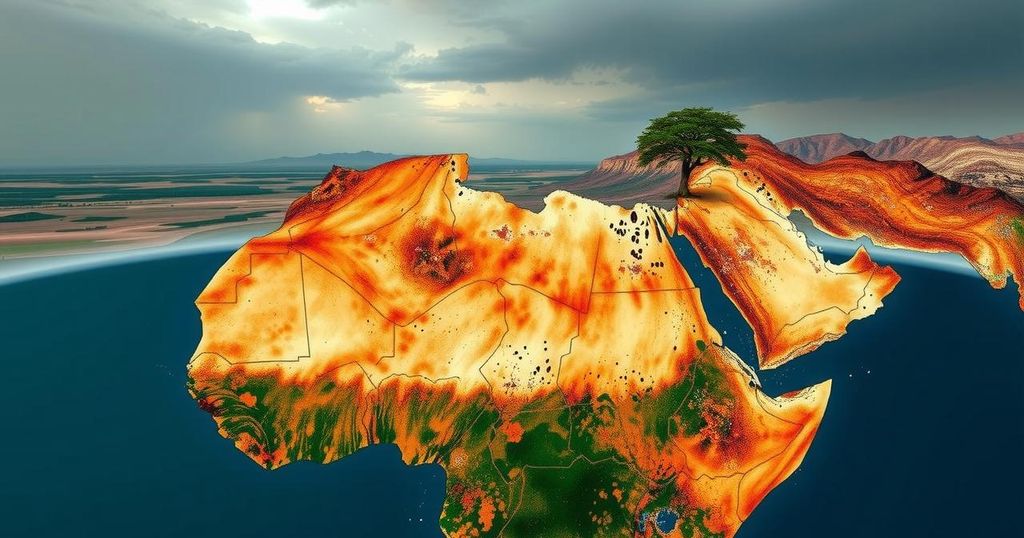The report investigates climate change-related losses and damages in the Sahel and Greater Horn of Africa, emphasizing its severe impact on agriculture and livestock sectors. It highlights significant current issues and future risks associated with climate-attributable weather events, underscoring the need for urgent action to mitigate these effects.
This report meticulously examines the losses and damages associated with climate change impacts in the Sahel and Greater Horn of Africa, with a concentrated focus on the agriculture and livestock sectors. It presents compelling data indicating that climate-attributable weather events have already inflicted significant harm on these sectors. Furthermore, projections suggest that these damages will escalate in intensity and frequency, thereby exacerbating existing vulnerabilities in the region’s food security and livelihoods. The findings underscore the urgency of addressing the fallout from such climate conditions in affected communities.
The Sahel and Greater Horn of Africa regions are particularly susceptible to the adverse effects of climate change, owing to their reliance on agriculture and pastoralism for their economic survival. Climate variability has resulted in increased occurrences of droughts, floods, and erratic weather patterns, which threaten the stability of these vital sectors. Understanding the implications of these climatic changes is instrumental in informing policies and interventions aimed at mitigating loss and damage, enhancing resilience, and securing the livelihoods of those dependent on agriculture.
In summary, the report highlights the increasing threat posed by climate change to the agriculture and livestock sectors within the Sahel and Greater Horn of Africa. The current and anticipated future losses necessitate immediate and concerted efforts to implement adaptive measures. Stakeholders and policymakers must prioritize resilience-building initiatives to safeguard communities against the escalating impacts of climate change, thereby ensuring food security and sustainable livelihoods in the region.
Original Source: www.polity.org.za






